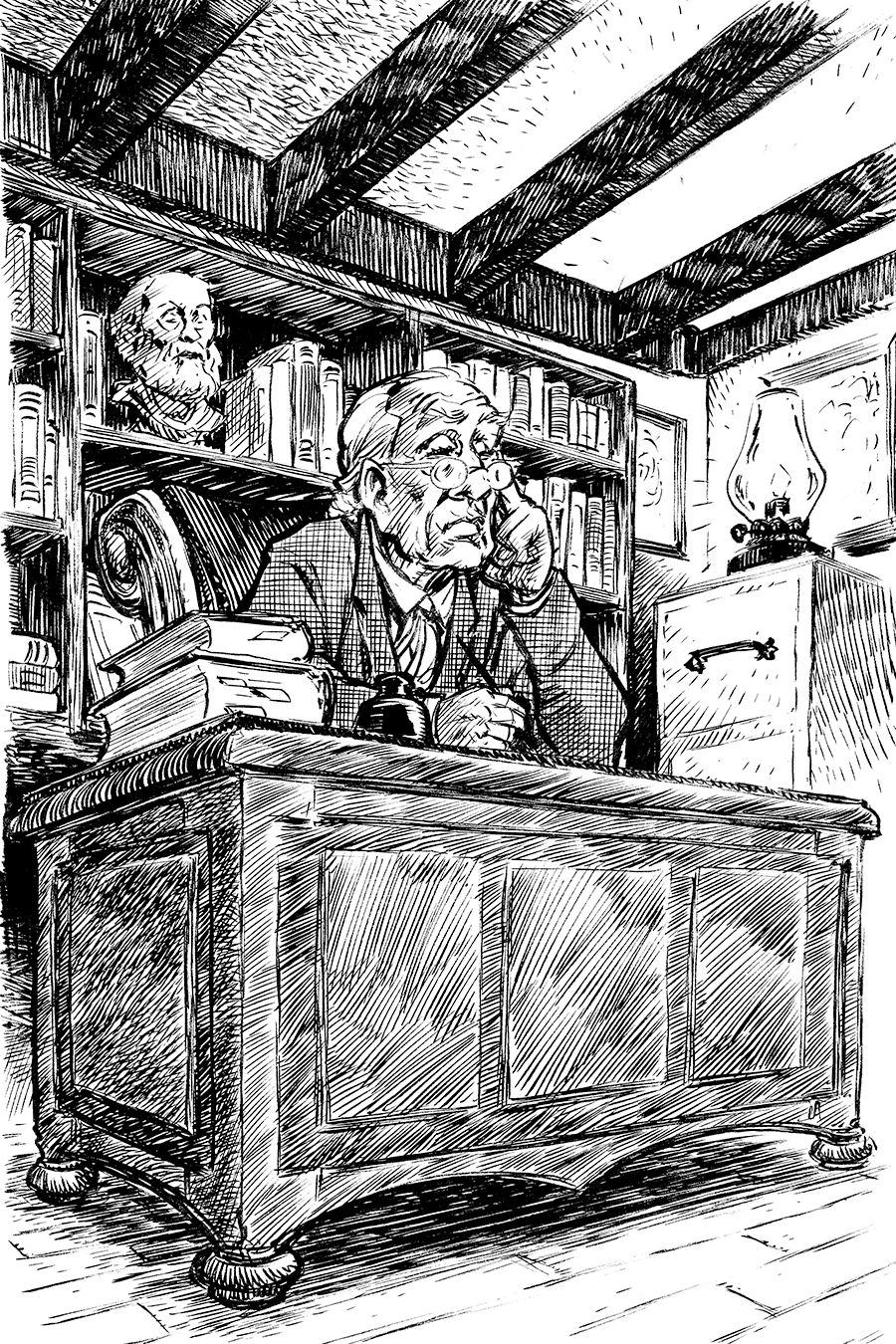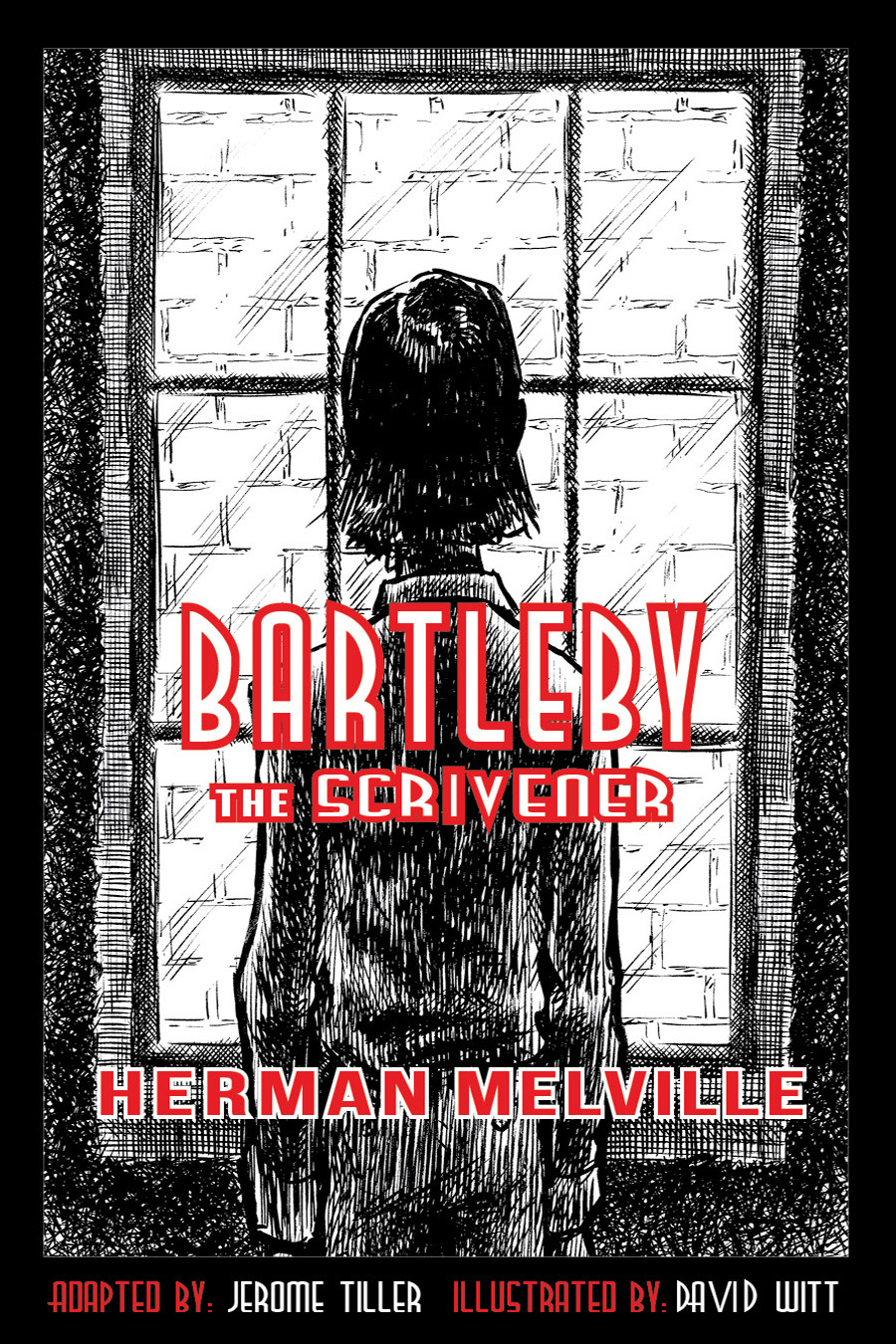The Old Lawyer - Bartleby's Main Character
Almost all analyses of the story Bartleby the Scrivener by Herman Melville center on the psychological traits of Bartleby. Nevertheless, despite the long-standing and ongoing fascination with Bartleby, it's impossible to ignore that his employer, the old lawyer and the narrator of the story, is actually the story’s main character. You could even say the lawyer was the first entity to unsuccessfully analyze the strange man he had hired to perform work that the man repeatedly prefers not to do. While doing so, the lawyer models the extreme patience all readers need when attempting to do their own analysis of an inscrutable character who somehow demands to be comprehended. Beyond his patience, however, and much more importantly, the nameless old lawyer models overarching solicitude for a person he could never understand in the least.
Given all this, let’s spend a little time in this blog trying to analyze the lawyer in the story. Melville immediately tell us he is a lawyer who prefers comfort over contentiousness in his work life. Consequently, he made the career choice to spend no time or effort in courtrooms engaging in arguments to obtain advantageous verdicts, opting instead to work in a snug little office managing investments for clients who come to him for his expertise and advice on monetary matters. Stressful at times, undoubtedly. But adversarial, not so much. At least not until his client workload increases, which requires more hired help. Bartleby gets the job and the contentious work atmosphere the lawyer had always planned to avoid ensues.
The lawyer’s solicitude for Bartleby does not arise immediately. How could it? He had hired the copyist to do work, work that needed getting done, work that Bartleby makes plain time and again that he would prefer not to do. Instead the lawyer chooses to explore the mystery that Bartleby embodies with his presence and articulates with his preference not to work. He needs to figure Bartleby out. This, of course, will require great patience as Bartleby is infinitely mysterious.
As a storyteller Melville understands there is no compelling story to tell if the lawyer throws the bum out like any other employer would. Instead, Melville endows the lawyer with the patience necessary to probe into the deep mystery of Bartleby until his patience eventually blends seamlessly with the solicitous attitude he steadily developed for Bartleby.
The patience that mystery requires is easily understood, leastwise so far as there is a common human tendency to want to figure things out. That tendency, coupled with a willingness to invest the time needed to do the figuring out requires patience by necessity. But earnest concern for another human being is another thing. Just where does that come from?
Melville suggests that the lawyer quickly develops a benevolent attitude toward Bartleby. After the first major incidence of Bartleby preferring not to work, he concludes that Bartleby intends no mischief or insolence, so he decides to keep him on. After reaching this conclusion, he then consciously demonstrates his solicitude for the first time by analyzing what could happen if he were to turn Bartleby away. He thinks a less indulgent employer might treat him rudely or even drive him away to live in misery or die of starvation. Yes, it’s true he simultaneously believes his patience with Bartleby might result in his own self-approval and the sweetening of his conscience. But the fact he had a conscience that’s open to sweetening and that he desired that to happen shows his conscience influenced him while subsisting in the Wall Street culture. Maybe not rare, but probably not so common either.
This first kind-hearted decision by the lawyer also portends more important solicitous acts to come. After experiencing some ups and downs in his relationship with Bartleby, the lawyer discovers that the mysterious clerk he hired to work for him has been preferring to live overnights and weekends in his law office. Immediately upon discovering this, the lawyer considers how miserably friendless and lonely it must be dwelling in solitude in a law office on Wall Street. He then feels the bond of common humanity drawing him irresistibly into ‘fraternal melancholia’, which was heightened by his identification with Bartleby in the sense that both he and him were sons of Adam.
Is not how the lawyer responded to Bartleby at least as mysterious as Bartleby himself? So from whence did his responses emanate? There is some evidence. We know the lawyer went to church one Sunday morning to hear a celebrated preacher, which indicates he was a man of faith. Does this make it fair to presume his responses came from above? The lawyer cares deeply for the impenetrable Bartleby, a complete stranger, with solicitude that approaches compassion, falling short of the ultimate only because Bartleby was unknowable. He gives himself to Bartleby and serves him as if he were one of his own. He cares for him throughout their relationship, a care which steadily intensifies up to the very end. Sure seems otherworldly to me!
In my opinion, whatever the source for this solicitude, whether from above or otherwise, his caring for and serving the incomprehensible Bartleby so thoroughly throughout the story earns the old lawyer main character status in one of the greatest stories ever told. Ah, old lawyer! Ah humanity!



